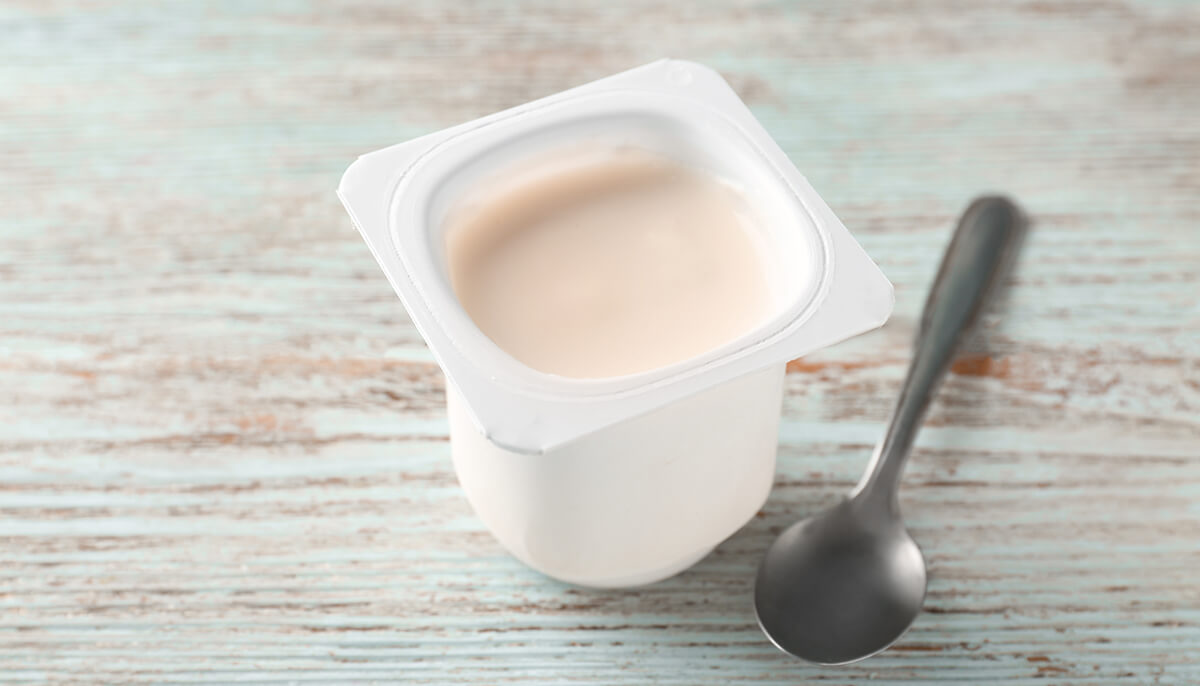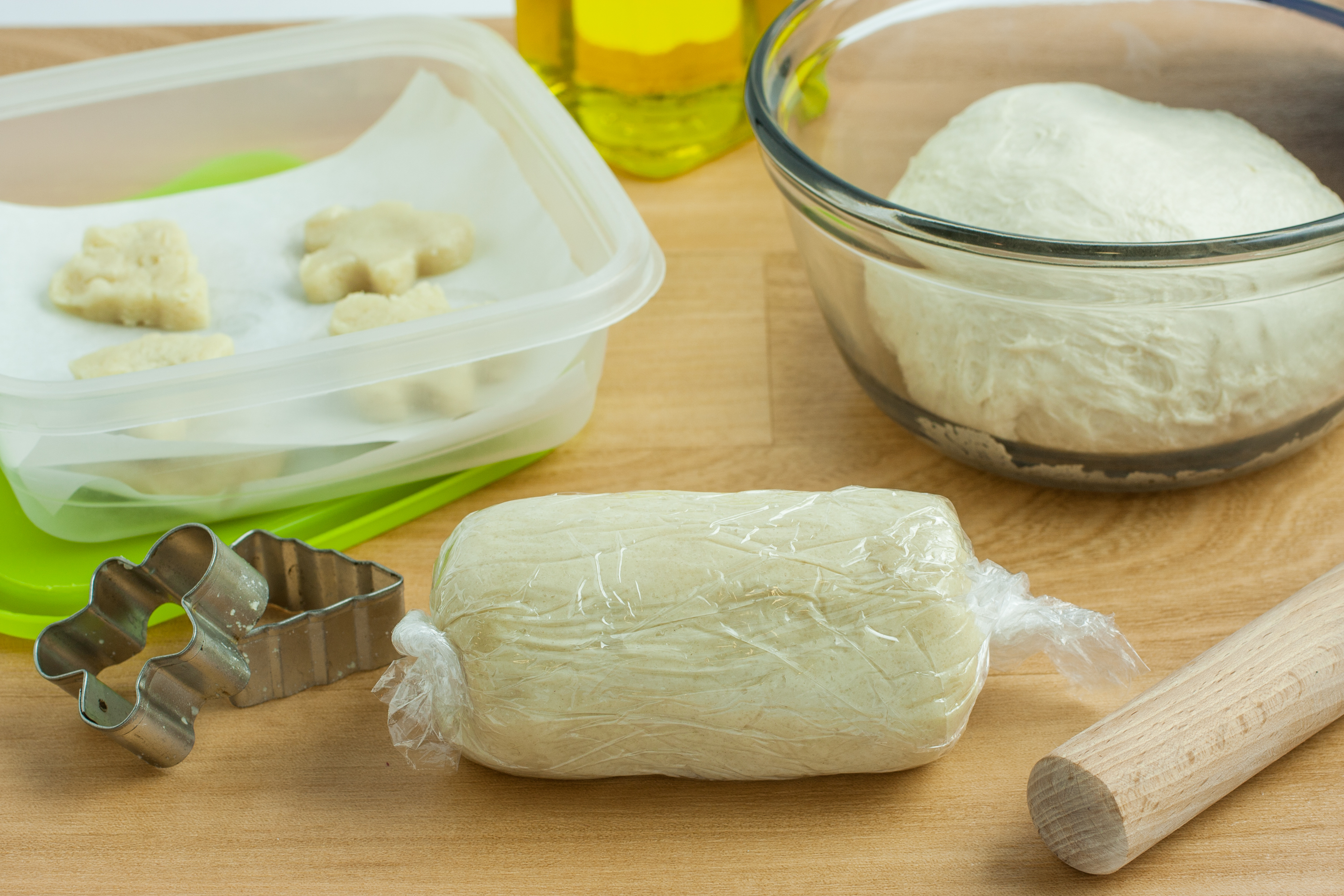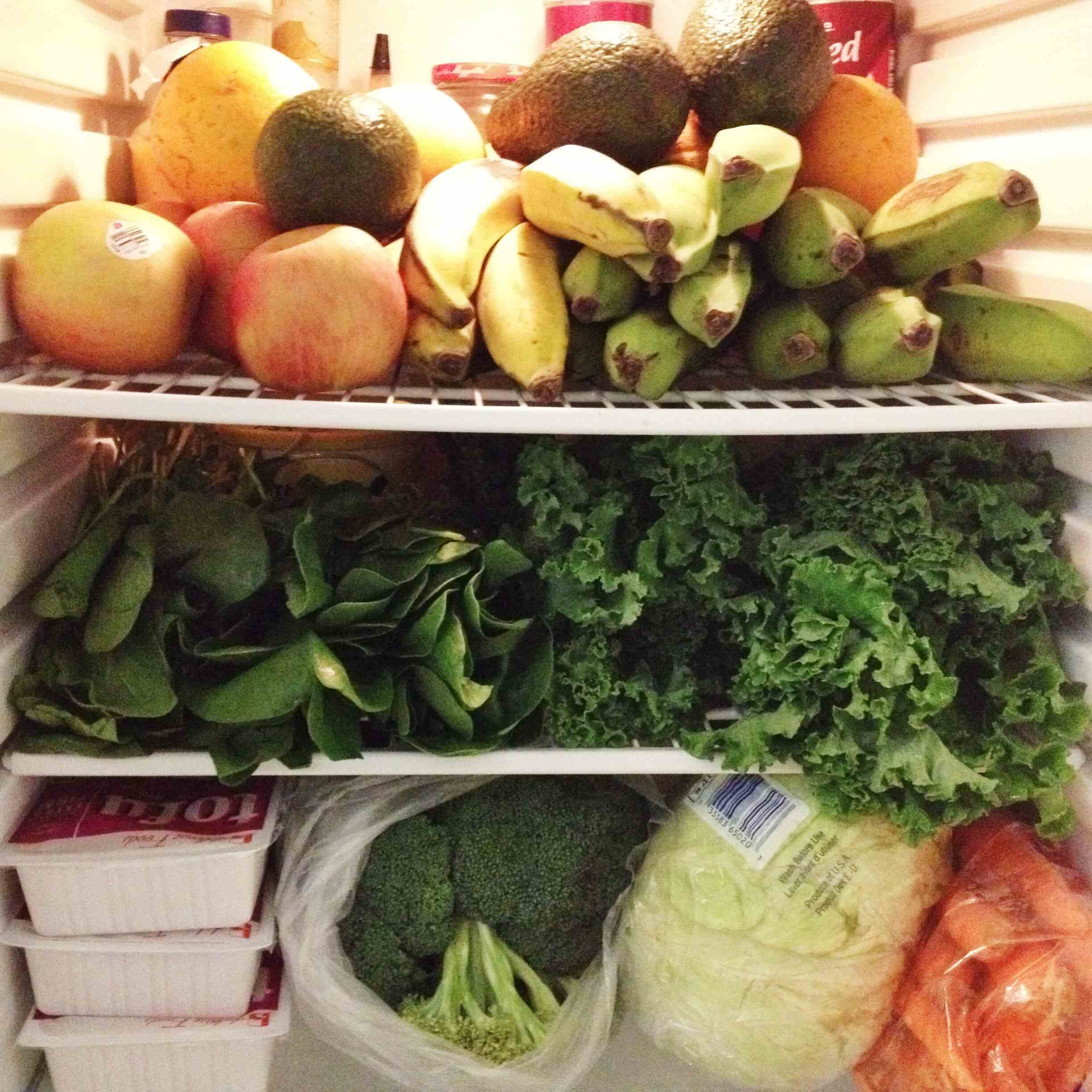

Articles
How To Store Yogurt In The Fridge
Modified: December 7, 2023
Learn how to properly store yogurt in the fridge to keep it fresh and delicious. Read our helpful articles for expert tips and tricks.
(Many of the links in this article redirect to a specific reviewed product. Your purchase of these products through affiliate links helps to generate commission for Storables.com, at no extra cost. Learn more)
Introduction
Yogurt is a delicious and nutritious dairy product that is a staple in many households. Whether enjoyed on its own, as a topping, or in various recipes, yogurt provides a tasty and versatile option for meals and snacks. However, to ensure that yogurt stays fresh and maintains its quality, proper storage is essential.
Properly storing yogurt in the fridge is crucial to prevent spoilage and maintain its taste and texture. It’s not only about keeping it at the right temperature; choosing the right containers and following the best practices can also make a significant difference in extending the shelf life of your yogurt.
In this article, we will discuss the importance of storing yogurt properly, explore the best practices for fridge storage, provide tips for extending yogurt’s shelf life, and answer some commonly asked questions to help you make the most of your yogurt.
Key Takeaways:
- Properly storing yogurt in the fridge is crucial to maintain its freshness, taste, and nutritional benefits. By following best practices, you can extend its shelf life, reduce waste, and ensure safe consumption.
- Choosing the right containers, maintaining proper hygiene, and being mindful of expiration dates can help maximize the shelf life of yogurt. By following these tips, you can continue to enjoy fresh and delicious yogurt for longer periods.
Read more: How To Store Yogurt
Why is it important to store yogurt properly?
Properly storing yogurt is essential for several reasons. First and foremost, it helps to maintain the freshness and quality of the yogurt. When yogurt is not stored correctly, it can spoil quickly, leading to changes in taste, texture, and even the development of harmful bacteria.
Yogurt contains live cultures, such as Lactobacillus acidophilus and Bifidobacterium lactis, which are beneficial bacteria that contribute to its health benefits. These live cultures are responsible for the tangy flavor and creamy texture of yogurt. When exposed to improper storage conditions, these live cultures may die off or become less active, diminishing the yogurt’s nutritional value.
Another reason to store yogurt properly is to prevent cross-contamination. Yogurt can easily pick up odors and flavors from other food items in the fridge, affecting its taste. Storing yogurt in airtight containers or sealing it tightly can help keep it free from unwanted flavors and odors.
Furthermore, storing yogurt properly can help minimize waste and save money. When yogurt is stored correctly, it can maintain its quality and freshness for a longer period, reducing the need to discard it due to spoilage. By following proper storage practices, you can ensure that you make the most of your yogurt and avoid unnecessary waste.
Lastly, improper storage can lead to the growth of harmful bacteria, which can pose health risks if consumed. High temperatures or prolonged exposure to air can create an environment conducive to bacterial growth. By storing yogurt at the appropriate temperature and ensuring airtight containers, you can minimize the risk of contamination and safeguard your health.
Overall, by storing yogurt properly, you can preserve its freshness, maintain its nutritional value, prevent cross-contamination, reduce waste, and mitigate potential health risks. Now, let’s delve into the best practices for storing yogurt in the fridge to ensure optimal results.
Best practices for storing yogurt in the fridge
To maximize the freshness and quality of your yogurt, here are some best practices for storing it in the fridge:
1. Check the expiration date: Before storing yogurt, check the expiration date on the container. It’s important to consume yogurt before it expires to ensure its quality and taste. 2. Keep it at the right temperature: The ideal temperature for storing yogurt is between 36-39°F (2-4°C). Set your fridge to this temperature range to maintain the yogurt’s freshness. Avoid storing yogurt in the fridge door, as the temperature fluctuates more frequently there. 3. Choose the right shelf: Place yogurt on a middle shelf, away from the back of the fridge where it is colder. This helps maintain a consistent temperature and avoids exposure to fluctuating temperatures when opening and closing the fridge. 4. Use airtight containers: If you transfer yogurt to a different container, ensure it is airtight to prevent exposure to air and odors from other food items. Airtight containers also help retain the yogurt’s moisture and texture. 5. Keep it away from strong odors: Yogurt can easily absorb strong odors from other food items in the fridge. Store it away from pungent foods like onions, garlic, or strong spices to preserve its original flavor. 6. Avoid direct light: Exposure to direct light can affect the quality and nutritional properties of yogurt. Keep it in a covered container or store it in a darker area of the fridge. 7. Don’t freeze yogurt: While yogurt can be frozen, it can alter its texture and lead to separation. It’s best to consume yogurt before the expiration date rather than freezing it. 8. Rotate stock: If you have multiple containers of yogurt, use the “first in, first out” method. Consume the yogurt with the earliest expiration date first to ensure you’re always consuming the freshest product. 9. Do not store open containers: If you have open containers of yogurt, it’s best to consume them within a few days. Yogurt exposed to air will spoil faster, so it’s important to finish it promptly. 10. Keep the fridge clean: Regularly clean and organize your fridge to prevent cross-contamination and maintain a fresh environment for storing yogurt. By following these best practices, you can ensure that your yogurt stays fresh, maintains its taste and texture, and provides you with maximum enjoyment and nutritional benefits. Now that we have covered the proper storage practices, let’s explore some tips for extending yogurt’s shelf life.
Temperature and location in the fridge
The temperature and location in the fridge are crucial factors in properly storing yogurt to maintain its freshness and quality.
The ideal temperature range for storing yogurt is between 36-39°F (2-4°C). It’s important to set your fridge to this temperature range to ensure that the yogurt stays cool and fresh. Avoid storing yogurt in the fridge door as it is often subjected to temperature fluctuations when the door is opened and closed frequently.
When choosing the location in the fridge for your yogurt, opt for a middle shelf. This is because the back of the fridge tends to be colder, which could lead to freezing or unwanted changes in texture. By placing yogurt on a middle shelf, you are ensuring a more consistent temperature, allowing the yogurt to maintain its taste and texture.
Additionally, it’s important to keep the yogurt away from areas of the fridge that are exposed to direct light. Exposure to light can degrade the quality of the yogurt and lead to a loss of nutritional properties. Store your yogurt in a covered container or keep it in a darker area of the fridge to protect it from the damaging effects of light.
By maintaining the appropriate temperature and choosing the right location in the fridge for your yogurt, you can help prolong its shelf life and preserve its freshness and quality. Next, let’s discuss the importance of using the right containers for storing yogurt.
Store yogurt in the back of the fridge where the temperature is most consistent. Keep it in its original sealed container to maintain freshness and prevent absorption of other odors.
Using the right containers
Choosing the right containers for storing yogurt is essential to maintain its freshness, texture, and taste. Here are some tips for selecting the right containers:
1. Airtight containers: Opt for airtight containers to store yogurt. These containers help to seal in moisture and prevent exposure to air, which can cause the yogurt to dry out and spoil faster. Glass or plastic containers with secure lids are great options for storing yogurt. 2. Individual serving containers: If you buy yogurt in larger tubs but prefer to consume it in individual servings, consider transferring the yogurt to smaller portion-sized containers. This allows you to open and consume only what you need, keeping the rest of the yogurt sealed and fresh until you’re ready to eat it. 3. BPA-free containers: When choosing plastic containers, look for ones that are labeled as BPA-free. Bisphenol-A (BPA) is a chemical found in some plastics that can leach into food and pose potential health risks. Opting for BPA-free containers ensures that your yogurt is stored in a safe and non-toxic environment. 4. Clear containers: Using clear containers for storing yogurt allows you to easily see the contents, check for any signs of spoilage, and monitor the freshness of the yogurt without having to open the container. 5. Stackable containers: If you’re tight on fridge space, consider using stackable containers for storing yogurt. These containers allow you to stack them on top of one another, maximizing the use of vertical space in the fridge. 6. Label containers: To keep track of the expiration date and ensure you consume the yogurt before it spoils, label the containers with the date of purchase or the expiration date. This simple step helps you avoid consuming yogurt that has expired and ensures the best quality and taste. 7. Dedicate containers for yogurt: To prevent cross-contamination and the exchange of odors, consider designating specific containers solely for storing yogurt. This minimizes the risk of unwanted flavors and helps preserve the yogurt’s original taste. By using the right containers, you can protect your yogurt from air exposure, maintain its moisture and texture, and reduce the risk of spoilage. Now let’s explore some additional tips for extending the shelf life of yogurt.
Read more: How To Store Homemade Yogurt
Tips for extending yogurt’s shelf life
To maximize the shelf life of your yogurt and ensure its freshness for as long as possible, consider the following tips:
1. Store unopened containers properly: If you have unopened containers of yogurt, keep them refrigerated at the appropriate temperature and follow the best practices mentioned earlier. This helps maintain the yogurt’s freshness and extends its shelf life. 2. Consume yogurt before the expiration date: While yogurt can sometimes be consumed a few days after the expiration date, it’s best to enjoy it before that date for the highest quality. Pay attention to the expiration dates on the packaging and prioritize yogurt that is closer to its expiration date. 3. Seal opened containers tightly: Ensure that you seal opened containers of yogurt tightly after each use. This helps prevent air from entering and speeds up the spoiling process. If the lid from the original container is not airtight, consider transferring the yogurt to a separate airtight container. 4. Don’t mix different flavors in one container: Mixing different flavors or add-ins, such as fruits or granola, in the same container can decrease the shelf life of the yogurt. It’s best to keep each flavor separate until you’re ready to enjoy them. 5. Be mindful of contamination: Avoid using spoons or other utensils that have been in contact with other foods or surfaces to scoop out yogurt. This can introduce unwanted bacteria and shorten the shelf life of the yogurt. Use clean utensils each time you retrieve yogurt from the container. 6. Use proper hygiene: Wash your hands thoroughly before handling yogurt to prevent the transfer of bacteria. Clean your utensils and containers regularly to maintain a hygienic environment for storing yogurt. 7. Don’t leave yogurt at room temperature for too long: Once you take yogurt out of the fridge, it’s important to put it back promptly. Leaving yogurt at room temperature for an extended period can cause it to spoil faster. Avoid leaving yogurt out for more than 2 hours. 8. Consider portion control: If you consistently find yourself unable to finish a large container of yogurt before it spoils, try buying smaller portion-sized containers. This allows you to consume yogurt within a shorter period, reducing the risk of wasting unused portions. By following these tips, you can extend the shelf life of your yogurt and continue to enjoy its fresh taste and creamy texture for a longer period. Now, let’s address some frequently asked questions about storing yogurt in the fridge.
Frequently asked questions
Here are some frequently asked questions about storing yogurt in the fridge:
1. Can I freeze yogurt? While yogurt can be frozen, it can alter its texture and lead to separation. It’s best to consume yogurt before the expiration date rather than freezing it. 2. Can I store yogurt in the freezer if it’s close to the expiration date? If your yogurt is close to the expiration date and you’re unable to consume it in time, you can freeze it to prolong its shelf life. However, keep in mind that the texture may change, becoming slightly grainy or watery, upon thawing. 3. Can I store yogurt in glass jars? Yes, storing yogurt in glass jars is a great option. Glass containers help maintain the yogurt’s freshness and can be sealed tightly to prevent air exposure. 4. How long does yogurt last in the fridge? The shelf life of yogurt varies depending on the type, brand, and storage conditions. Generally, unopened yogurt can last up to 1-2 weeks past the expiration date when stored properly in the fridge. Opened yogurt should be consumed within 5-7 days. 5. Is it safe to eat yogurt that has passed its expiration date? Consuming yogurt that has passed its expiration date is generally safe as long as it doesn’t show any signs of spoilage, such as an off smell, mold growth, or unusual texture. However, it’s always best to use your judgment and consider the quality and freshness before consuming. 6. What should I do if I notice mold on my yogurt? If you spot mold on your yogurt, discard it immediately. Mold can produce harmful toxins, so it’s important not to consume any food that shows signs of mold growth. 7. Can I store yogurt in the fridge door? It’s best to avoid storing yogurt in the fridge door as it is subjected to temperature fluctuations when the door is opened and closed frequently. The middle shelves of the fridge provide a more stable temperature for storing yogurt. 8. Is Greek yogurt more perishable than regular yogurt? Greek yogurt and regular yogurt have similar shelf lives if stored properly. However, the higher protein content in Greek yogurt may cause it to spoil faster once opened. 9. Can I use yogurt past its “best by” date? The “best by” date on yogurt indicates the period of time during which the manufacturer guarantees the highest quality and taste. However, yogurt can still be consumed and enjoyed beyond this date as long as it doesn’t show signs of spoilage. Remember, it’s important to use your judgment and rely on your senses when determining the freshness and safety of yogurt. When in doubt, it’s best to err on the side of caution and discard the yogurt.
Conclusion
Properly storing yogurt in the fridge is crucial to maintain its freshness, taste, and quality. By following best practices such as storing yogurt at the right temperature, choosing the appropriate location in the fridge, using airtight containers, and preventing cross-contamination, you can extend the shelf life of your yogurt and make the most of this nutritious and versatile dairy product.
By storing yogurt properly, you can preserve its live cultures, maintain its nutritional benefits, and ensure a great taste and texture. It helps prevent spoilage, reduces waste, and minimizes the risk of harmful bacterial growth, providing you with safe and enjoyable yogurt consumption.
Additionally, being mindful of expiration dates, sealing containers tightly, and practicing good hygiene can further contribute to prolonging the shelf life of yogurt.
Remember to check the frequently asked questions for additional guidance on topics such as freezing yogurt and handling expired or moldy yogurt. Use your judgment and rely on your senses when determining the freshness and safety of yogurt.
So, the next time you grab a container of yogurt from your fridge, follow these guidelines to ensure that it remains fresh, delicious, and nutritious. Proper storage practices will allow you to enjoy yogurt to its fullest, enhancing your culinary experiences and promoting a healthy lifestyle.
Frequently Asked Questions about How To Store Yogurt In The Fridge
Was this page helpful?
At Storables.com, we guarantee accurate and reliable information. Our content, validated by Expert Board Contributors, is crafted following stringent Editorial Policies. We're committed to providing you with well-researched, expert-backed insights for all your informational needs.















0 thoughts on “How To Store Yogurt In The Fridge”